Self-organization in the time of epidemic: how people can reshape society (3)
Author: Chestnut, Geometry, Honey Bullet, Useless, K, Me, Ноября , Jellyfish
This article is about 35,000 words long, divided into three parts, which can be collected and read.
The directory is as follows:
(1) Emergency self-rescue: coagulation factors after arterial rupture
1. slow and fast
2. Neglected distances and crowds
3. The collapse of state corporatism
4. The Dilemma of Self-Organization
(2) Beyond statism: civil society or market forces
1. Is civil society the antidote?
2. The crowding out of "society" in public opinion
3. Let’s talk about the dilemma of civil society
(3) Beyond Civil Society: Seeking True Popular Autonomy
1. Theory and Practice: Alternatives to the Social Perspective
2. History and Prospects of Emerging Internet Technologies
3. Outlook: Based on this self-organizing action
Beyond Civil Society: The Quest for True Popular Autonomy
In the last part, we talked about the fact that the current theory of "civil society" can neither effectively deal with the threat and harm brought by the class unity of the state and capital to the vulnerable people, nor can it mobilize and integrate the divided people's power to rebuild a new society. It is also difficult to come up with international solutions to bridge the gap between North and South, so as to build global democratic institutions that transcend national borders to deal with human crises. If we are to pursue an alternative that is truly self-determined and governed by the people, we must go beyond the existing conception of "civil society".
Theory and Practice: Alternatives to the Social Perspective
Given that states and markets are indeed firmly in control of the political and economic spheres, and they continue to expand, we may not be able to escape the framework of the rule of thirds. But if the framework of the rule of thirds is placed in the changing historical context, we may be able to imagine a program of struggle for the continuous empowerment of "civil society". This is exactly the core of American sociologist Wright's theoretical conception of "true utopia".

He offers a refreshing understanding of "socialism" based on "civil society": "Discussions of the concept of socialism, if not in terms of a binary opposition to capitalism, If statism is compared at the same time, then we can define it as an economic structure in which the means of production are jointly owned by the whole society, so the distribution and use of resources for various social purposes can only be achieved through the implementation of social power. State power, as distinct from economic power, is the power rooted in civil society to mobilize people in various cooperative, voluntary collective activities.”
"The more forms and degrees of social empowerment over the use and control of economic resources and activities, the more reason we can have to say that the economy is socialist." "Socialism" in its context emphasizes: a Social investment and control of production are organized through various mechanisms of social empowerment. In other words, the populace transcends capitalist and statist modes of control through increasing "social power."
This means that civil society can neither be regarded as a third domain that cooperates with the political state and capital society to maintain the existing social order, nor should it be merely a public domain for cultural and ideological struggles, it cannot even be regarded as simply It is the same as the existence of social organizations and social movements. Civil society means a constant struggle for power towards popular autonomy and emancipation, striving to break down various internal and external constraints. Under this premise, if the idea of "democracy" refers to the subordination of state power to social power, and the idea of "socialism" refers to the subordination of economic power to social power, then "civil society" is a combination of the two. The meanings of "democracy" and "socialism" have therefore been extended and renewed based on and beyond historical experience and the traditional division of left and right ideology. How can we say that a "democracy" that excludes the struggle to subordinate economic power to social power is a complete democracy? How can it be said that "socialism" that excludes the struggle to subordinate state power to social power is complete socialism? This is where we think Wright's theory differs from the traditional theory of "civil society", and this is what we will mean when we use the term "civil society" below.
So how exactly do we seek solutions to popular autonomy beyond capitalist civil society? Wright proposes five ways to empower society. The following will cite Wright's introduction to these five social empowerment approaches, and correspondingly supplement some practical cases that exist in reality. Quoting these is not an attempt to prove that they are perfect and universal, but it is the selection, composition, and creation of specific institutional ideas that may propel us toward greater social empowerment.
1 Statist socialism
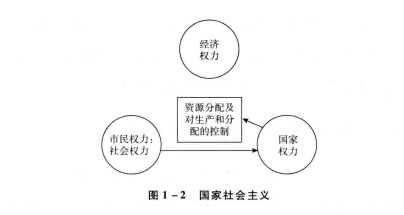
The state is one of the means by which popular power—power rooted in associational activity in civil society—is transformed into control over production and distribution.
In this classic model, actors have the power to organize production not because of their direct possession of assets, but because of their collective political organization in civil society and their operation of state power. The historical assumption on paper of revolutionary socialism is that, because of the party's organic ties to the organized working class, the party's control of the state becomes a mechanism by which civil society controls the state. In addition, through participatory councils, workers' organizations are directly involved in the exercise of power in the state and production. The crucial question, then, is to what extent can state-controlled commodity production be brought under the de facto control of a democratically empowered civil society? If we refer to the Soviet-style state socialism we see in reality, then we can undoubtedly judge that the socialist vision of democratic nationalism has not been realized due to the disappearance of civil society. Of course, most countries today still provide public goods such as health care, education, and public transportation to varying degrees, but compared with the powerful influence of capitalist economic power on state policy, the influence of social power through representative democracy is limited. As a result, the provision of public goods often serves capital accumulation rather than social needs. Deepening the democratic character of the state thus becomes the central issue, and only by addressing this issue can the state's provision of goods and services be a real means of social empowerment.
Some places first carried out democratic reforms to improve the efficiency of public goods provision. In the Brazilian city of Port Alegre, the participatory budgeting system developed since the 1990s has attracted a large number of ordinary citizens and sub-organizations to participate in the real decision-making of the city budget, especially for the places provided by the government. budget for sexual public goods. Participatory budgeting has led to a significant change in the direction of local government investment in infrastructure, making it more responsive to the needs of the poor and the working class.
After the financial crisis, the Icelandic capital Reykjavik launched an experiment in 2010 with "digital democracy" - citizens participating in municipal projects through the online platform "My Neighbors". More than 750 proposals have been implemented through the platform, such as the transformation of old power stations into youth centers, the addition of bicycle lanes, neutral toilets and a series of municipal construction plans. Online platforms also make raw data on government budgets available to the public to conduct public scrutiny for possible corruption. Citizens can also participate in public programs such as land and housing through the Karolina Fund, a crowdfunding platform. This practice of "radical municipalism" decentralizes democratic power to the lowest denominator, thereby skewing the provision of public goods and infrastructure in favor of specific groups.
Another line of thought is the radical decentralization of state power and the accompanying local self-government. The latest haunting example comes from the war-torn Kurdish region of the Middle East. The Syrian war, which began in 2012, has given the Kurds in Rojava an opportunity to achieve self-government in the region. According to the "Social Contract Charter" promulgated by the Rojava Autonomous Government in 2014, Rojava's autonomy is built on the three foundations of direct democracy, ecological protection and women's liberation. Citizens meet in "communes" of typically 300 to 400 households, and collectively decide on matters involving all aspects of life - from traffic management to the municipal cooperatives that should be opened. Subsequently, the commune sent representatives to the community or village committee, which in turn sent representatives to the district or city level, and finally to the state level. And the coordinating bodies are only produced between the states, rather than a central authority that overrides the states. The states form a confederation as a whole, not a traditional nation-state. (See "The Emblem of Democratic Federalism: The Political System of the North Syria-Rojava Federation" )
An important source of thought for this political blueprint called "Democratic Confederation" is the "Liberty Town Autonomy" proposed by the American social ecologicalist thinker Murray Bookchin (1921-2006) . Interview | Debbie Bookchin: What is 'Liberal City Autonomy?' ). This idea advocates placing power in the hands of ordinary people living in cities and villages and organizing face-to-face radical democracy at the local level. The idea is also thought to be relevant to broader issues like achieving racial justice, curbing ecological degradation and fighting capitalism, but it all starts with the community. Under this line of thinking, the local distribution of state power is conducive to the democratic participation of the people, thus providing more space for social empowerment of what Wright calls "statist socialism", but this itself forms Our challenge and renewal of the existing concept of the "state" - but shouldn't this be seen as a solution to what Marx calls the "self-destruction" of the state?
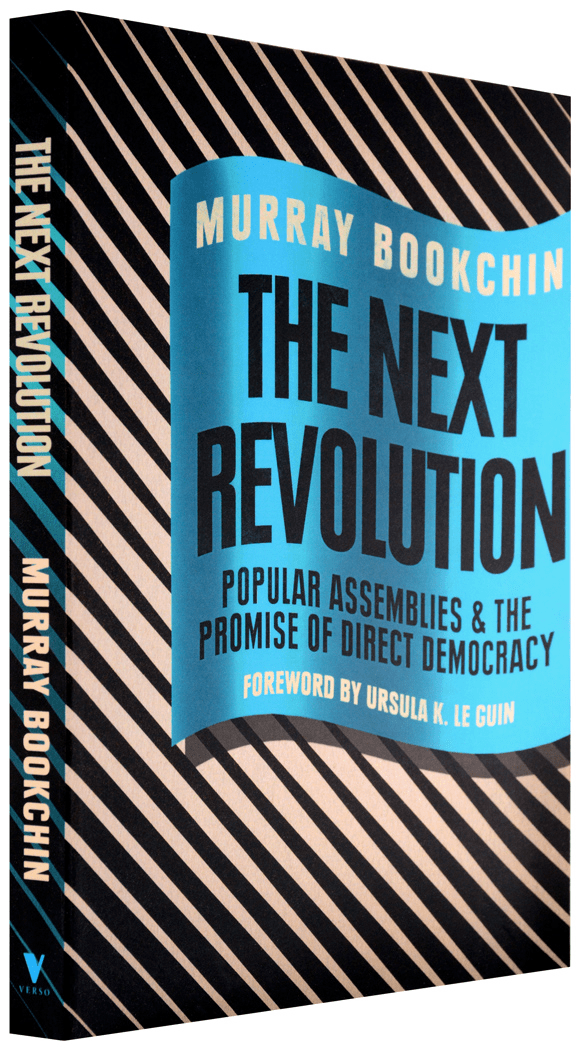
2 Social democratic regulation
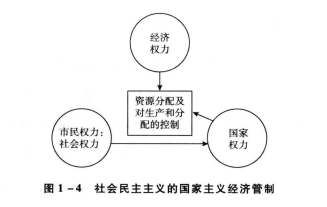
A second possible pathway of social empowerment has to do with the way the state limits and regulates economic power. Even in today's era of deregulation and the triumph of free market ideology, the state deeply influences the regulation of production and distribution in a way that undermines the economic power of capitalists. If these forms of active state intervention are themselves in fact subordinate to social power , then this is a path to social empowerment.
The closest example to us is the reform of the Korean National Pension System. As the National Pension Service (NPS) of South Korea really began to exercise its voting rights over the chaebol as a shareholder, the government has begun to respond to the people's demands for economic democratization. The Korean National Pension is similar to the Korean pension. It is in charge of the National Pension Service (NPS), an independent legal person. NPS owns more than one-fifth of South Korea's GDP and actively invests in major Korean chaebol companies. This makes the state a major shareholder in South Korean chaebol companies. In the past, NPS has only profited from it and has not sought to influence the decisions of chaebol corporations by exercising voting rights. But now this reform enables state economic intervention in the private sector. Although this move is regarded by the chaebol as a breach of market rules, it undoubtedly responds to the voice of the people.
Another example comes from the Swedish economist Rudolf Meidner. He put forward the proposal of "Meidner Plan" in the construction of social welfare system in Sweden after the war. The proposal requires the Swedish company to transfer the initial 20% of the shares to the union-controlled workers' fund, thereby gradually transferring ownership to the workers and achieving the socialization of the Swedish company. The handover of shares provides key underpinnings to the Swedish welfare model and gives workers' funds a voice and a vote in decision-making at big companies. If the plan is implemented successfully, in 20 to 30 years, the workers' fund will become the master of the national economy.
3 Assosiative democracy
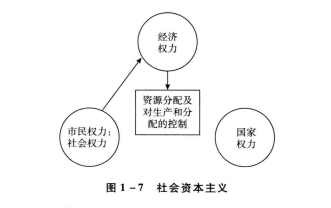
Wright's "democracy of association" here means that social power and state power jointly exert influence on economic power. Collective organizations in civil society, often together with state agents, are directly involved in various types of management activities through a series of institutional designs.
Perhaps the most familiar form is the tripartite neo-corporatist in social-democratic societies, that is, a tripartite gathering of organized labor, employers' associations, and the state to negotiate economic regulation, In particular, issues affecting the labor market and employment. Conferences of the International Labour Organization, the European Union's Economic and Social Committee, and the polder model consensus system established in the Netherlands, or the Irish Social Partnership system are examples of neo-corporatism.
However, the flow of capital and labor caused by globalization has led to a long-term weakening of the power of trade unions. When the power of capital and the government is too strong, third parties representing workers' interests and vulnerable groups are often very passive and have no chance for negotiation. In some cases, when the government and capital collude, the public does not even have the right to receive information. For example, in Hong Kong, a civil society that conducts independent research on land issues has found that real estate developers actually have the permission and participation of the government in the encroachment of land. In this case, the space for participation in social empowerment through "association democracy" in Wright's sense is squeezed. (For details, please refer to the report issued by the Self-Organizing Local Research Society)
In fact, beyond Wright's concept, there are more radical ideas of "association democracy". Could civil society completely replace state power? British economist and computer expert William Paul Cockshott, in his book Towards a New Socialism, proved the computability of economic systems and argued that anarcho-democratic committees could be established to conduct public Item management. The committees are composed of ordinary citizens by lottery, and their functions are similar to the self-governing organs in bourgeois civil society - independent central banks, broadcasting agencies, arts committees, research institutions, etc., so that public affairs are out of the control of the government. At the same time, the committee follows a charter that can be amended by the public and fully open the review process, and establishes a supervisory board representing the entire people to supervise and ensure the rationality of autonomy.
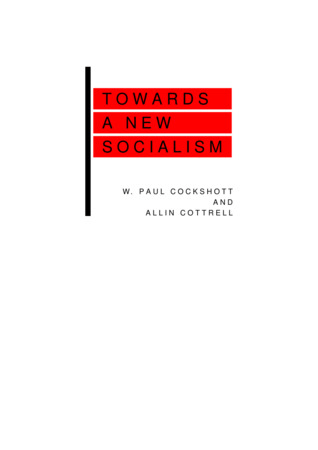
Theoretician Michael Albert and radical economist Robin Hahnel also proposed a participatory economics (Parecon) approach to governance in the 1990s as an alternative to capitalism. Participatory economics rejects private ownership of means of production, private property, corporate autocratic decision-making, and central planning and other forms of economic management, and advocates solidarity, pluralism, and citizen self-management. It is intended to replace the concept of economic freedom in mainstream economic thought, emphasizing that people should have the right to speak and make decisions proportional to their own influence in the process of social and economic decisions.
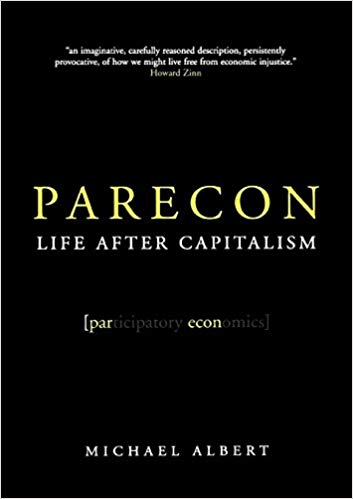
4 Social capitalism
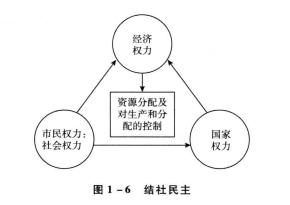
Social capitalism refers to sub-organizations in civil society that can directly influence the way economic power is used through a variety of mechanisms. In this context, economic power refers to the allocation, organization, and controlled use of various types of capital based on private property rights.
For example, unions, which often control large pensions, can exert influence over businesses by changing the way those pensions are managed. Robin Blackburn has proposed that the more ambitious plan for companies to share workers' pensions is to allow sub-organizations in civil society to have a significant impact on the pattern of capital accumulation. In Quebec, Canada, a worker-controlled venture capital fund, FTQ ( Fonds de solidarité, Solidarity Fund) , which aims to provide capital for start-up businesses that meet certain social standards, has been running successfully for more than three decades.
At the same time, social capitalism is not limited to the control of capital funds by organizations in civil society. Organizations in civil society can also limit economic power by empowering themselves, primarily through the collective participation of workers in the management of the workplace.
A limited example is Germany's co-decision system, which mandates that workers' representatives must occupy a certain number of seats on a company's board of directors; more radically, a stakeholder meeting directly replaces the shareholder meeting controlling a company's board. At the same time, the management of social power over economic power can be strengthened by empowering workers' councils in the workplace to monitor health and safety conditions. In addition, consumer-led anti-sweatshop and labor-norm movements, which are based primarily on college campuses, are an organized boycott of companies selling products that do not conform to social norms, thereby exerting consumer-led pressure on enterprise.
5 The social economy
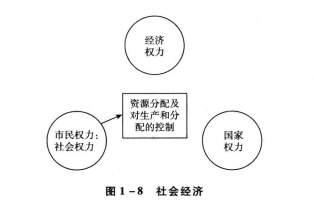
A final route to social empowerment is to involve subgroups in civil society directly in the organization of economic activity at all levels, rather than merely exerting influence.
Social economy is a production method that directly organizes economic activities, which is different from capitalist market production, state-organized production, and family production. It is characterized by the collective organization of production to meet human needs directly, rather than subject to profit maximization or state-technocratic rational logic. It includes clinics and nurseries organized by communities themselves, as well as NGOs that promote fair trade with developing countries in the southern hemisphere by reducing exploitative middlemen, and community land trusts, which take land back from the market to supply ordinary affordable housing.
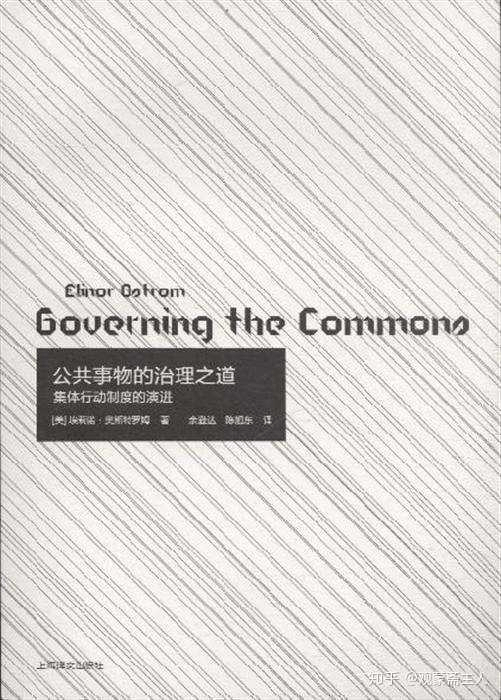
Ostrom, the first female scholar to win the Nobel Prize in Economics, has made research contributions. In her representative work " The Governance of Public Things ", she mentioned that neither the state nor the market has succeeded in enabling individuals to use the natural resource system in a long-term and constructive manner; Through the investigation and analysis of governance cases, Ostrom found that people in many communities, through institutional arrangements different from the market, have successfully implemented appropriate governance over some resource systems for a long period of time. This may be the third way beyond the state and the market. David Harvey commented that Ostrom's case study "smashes the assertion of many policy analysts that the only solution to the problem of common property resources is to rely on external authority to enforce full private property rights or to centralize management" .
In recent years, in order to fight for their own power in the face of the economic power dominated by the government and big companies, many groups of workers and peasants have begun to try to transition to a social economy. In 2004, there were more than 1 billion shanty towns (one in seven) worldwide. The squatting movement usually occurs on the fringes of big cities, where people build their own houses on unlicensed land. The campaign can be seen as a means of protecting buildings or protests, as in France, where the radical occupation defense zone (ZAD), designed to hinder development projects, successfully blocked the construction of a proposed airport. Another possibility is that these settlements grew legalized over time and became part of residential areas.
Since 1984, the Brazilian Movement for Landless Workers (MOVIMENTO DOS Trabalhadores in Portuguese, MST for short) has led more than 2,500 land occupations, benefiting about 370,000 farmers. After occupying the land, MST organized farmers to improve people's livelihood, built schools and clinics, obtained agricultural loans, promoted agricultural production, established cooperatives, and held cultural activities. Likewise, in Argentina after the 2001 financial crisis, many workers took over businesses that went bankrupt. For example, after a Bowen hotel in Buenos Aires declared bankruptcy, employees occupied the hotel, took control of its operations and helped other workers take over a similar move to take over the bankrupt business. Occupying bankrupt companies is not only a response to the economic crisis, but also heralds a possible transition to the cooperative movement towards sustainable business models. At present, cooperatives in the capital of Argentina are increasingly diversified, and their business scope has included restaurant operation, garbage collection, construction, sanitation, education and other fields. This is undoubtedly a successful attempt to lead to the social economy.
In fact, contemporary cooperatives are not only located in large and small corners of the world, the world's largest 300 cooperatives have reached a turnover of 2.2 trillion US dollars, but also in Cleveland and Jackson in the United States, Preston in the United Kingdom, and Chiapa in Mexico. The state of Sri Lanka, the city of Seoul in South Korea, the Emilia Romagna region in Italy, and the Catalonia and Basque regions in Spain have formed a network of cooperatives that gather and connect.
Take Emilia-Romagna as an example, this cooperative network is located in one of the most developed regions in Italy, with a population of nearly 4.5 million people, nearly 2 out of 3 citizens are cooperative members, cooperatives accounting for more than 40% of the region's GDP. By the beginning of the 20th century, cooperatives had spread throughout the region in production, agriculture, housing, banking and insurance. In the field of public works and construction projects, cooperatives also form groups to bid on larger projects and share the results of their work among consortium members. Further, specific industries and cooperative groups have established financial institutions and financing pools to provide equity and debt capital to each other. Many secondary cooperatives formed lending circles, guaranteed loans to each other, and established nonprofit cooperative banks. And in order to develop member capital, the consumer cooperatives offered to open savings accounts, which paid higher interest rates than local banks, making the Lega Consumer Cooperatives the largest food retailer in Italy.
Returning to the fundamental purpose of social empowerment - to provide an alternative solution to the current society, under the existing social and political conditions, the conception and design of a true utopia will not automatically be realized. As programs, they constitute desirable and feasible alternatives, but their achievability depends on the power of social actors and their environment.
The proposition worthy of constant exploration is: how can the power rooted in society be organized to control and arrange the production and distribution of resources? In addition, there are two issues that must be faced head-on. First, a dynamic society happens to be composed of various heterogeneous organizations, networks and communities, which are built on the basis of different goals, so how to achieve a unified power base? This is exactly what is needed to control complex economic systems. Second, many of the voluntary organizations that make up the society are based on certain exclusive interests and the protection of privileges, so how to coordinate the contradictions between voluntary organizations? These issues will be explored more in the next section.
History and Prospects of Emerging Internet Technologies
Since the 1960s, the interdisciplinary application of cybernetics, the great improvement of computer performance, and the invention and experimentation of Internet technology have led to frequent discussions on the possibility of large-scale calculations and planning for human economic society. After the global economic crisis in 2008, the birth and development of cryptocurrencies, blockchain and on-chain communities made people see more possibilities for social production, life and community organization.
In this epidemic, we should see that it is the widespread popularity of Internet technology that enables many self-organizing operations. This would have been unthinkable more than a decade ago. In addition to this epidemic, these technologies not only continue to expand the space of "civil society", but also enable the ability and potential of "civil society" to be deeply excavated and improved.
In fact, in a system, the basis of decision-making and the way of implementation of decision-making have always been the key issues related to the power structure and power relationship in the system. The emergence of new theories and technologies does often allow people to see the dawn of structural change within the system. But the broad prospects of idealism are still hindered by the realistic regulation of centralization of power. So far, although we have seen some historical attempts by traditional socialist countries to use Internet technology to improve social governance, there has been no successful case of promoting the growth of "civil society" and continuing to this day. We have also seen how in a capitalist society where Internet technology has been used on a large scale, the tech hackers who had the original intention of transforming the world were disappointed with the data and technology monopoly of the current Internet capital oligarchy, not to mention that more and more people are concerned about the possibility of Fear of digital totalitarianism in the coming state. Thus, drawing lessons and lessons from history may lay the groundwork for a vision of emerging technologies truly at the service of, and under their own control.
Take, for example, the Red Internet in the Soviet Union and the Allende experiment in Chile. Although both originated from top-level design, based on new technologies (cybernetics), and brought about structural changes (decentralization) in the relationship between the center and the grassroots, the Soviet Red Internet was due to the deep-rooted centralized bureaucracy. It was shelved and basically stayed at the stage of a paper plan. And Chile's cybernetic experiment ended in a brutal domestic military coup that died before it could be fully practiced and paid off.
The Soviet Union's conception of the Internet actually predates the United States. As early as 1958, Soviet military engineer Kitov proposed a concept called "Red Book", hoping to establish a national unified computer center network, integrating the management of the military and the national economy. The Red Book was ultimately cut in half over the military's reluctance to share resources with state programs. In the 1970s, in order to cope with the stagnation of domestic economic development, the Soviet Union began to build OGAS - National Computing and Information Processing Automation System. The system is intended to combine planned economy with cybernetics, realize synchronization of information, data and industry standards across the country through mainframe network, and transfer planned economy to computer control. The entire project will be completed by the 1990s and will connect at least 50,000 industrial enterprises, as well as an equal number of large agricultural production enterprises. Glushkov, the project commander and cybernetics expert, believes that compared with human management, computers can not only maintain the synchronization of national information, but also ensure efficiency and accuracy, bringing a new upgrade to the Soviet socialist economy. He also asserted that without automation, by 1980 the Soviet adult population would not be sufficient to effectively manage the Soviet economy. "As the planned economy grows and its technological order becomes more complex, 10 billion administrators will be needed to make effective decisions." The only thing that will save the planned economy is to delegate this work to machines - which also It was once seen by another cybernetics expert Kitov as a way to put an end to a Stalinist dictatorship. Therefore, this is an attempt to achieve decentralization through a computer-centric system, which is intended to replace human vertical design with data exchange and calculation as the basis for national economic decision-making. But these ideas were thwarted by different parts of the Soviet Politburo, and in the end the bureaucrats, out of their own interests, did not give the project the necessary funding. (See the compiled article "The Death of the Soviet Internet: A History of the Death of Digital Communism" compiled by the public account "Soviet Russia Broadcast" )
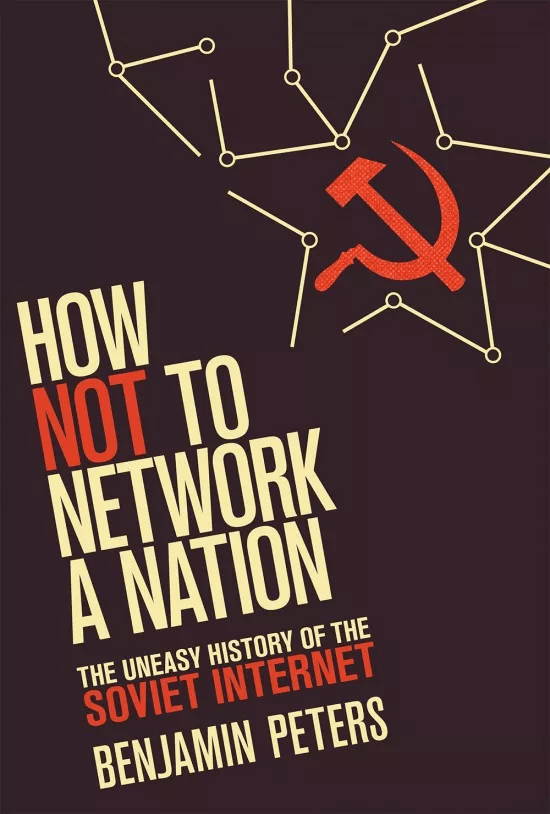
In South America in the 1970s, Chile, which was transitioning to socialism, also started its own Internet experiment. Allende, the first democratically elected socialist president, invited the British cybernetician Stafford Bill to Chile to build Project Cybersyn. In the article "Allende's Big Data Utopia", Wang Hongzhe introduced the beginning and end of the Chilean cybernetic Internet revolution in detail. Compared with the vagueness and absence of grassroots autonomy in the Soviet Union's "Red Internet" concept, the Cyber Collaborative Project not only expects managers to make quick decisions based on the real-time index and macro view of the country's economic activities, but also takes into account the production and life of socialist countries. the possibility of democratic governance.
Wang Hongzhe believes that the most significant difference between Chile's cyber coordination system and the Soviet Union's red network is that the Soviet Union is trying to build a national economic cybernetic system, which achieves accurate simulation of the model and omnipotence of production regulation by exhausting various economic indicators. And Chile’s cyber-synergy limits the number of production indicators the system collects, to prevent micro-interventions of the state in every detail, and to look for a balance between grassroots autonomy (decentralized power) and “one game of chess” (central decision-making) in feedback design balance point. For example, when the system detects an abnormality, the central operating room will issue an early warning to the planning department and the grassroots at the same time. The government will provide a limited time window for the grassroots to find and solve the problem. When the grassroots cannot solve the problem, the government will intervene. Wang Hongzhe believes that the design of the central operating room of cyber collaboration attaches great importance to the equality of data display and communication, and is a model of embedding political concepts into technical objects. The setting of cyber collaboration distinguishes the Internet socialism of the Soviet Union and Chile.
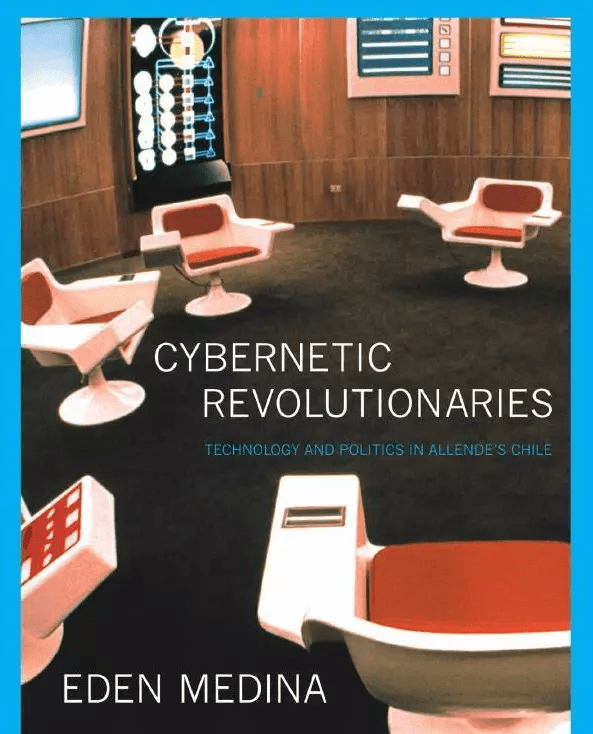
In fact, this "decentralized" Internet practice is echoing Allende's nationwide Worker Self-management Movement. Chilean socialists clearly realized that simply nationalizing economic units could still result in suppression of workers' autonomy. As a cybernetic system that interacts with the workers' self-government movement, the Cyber Synergy Project will naturally not be tolerated by the military dictatorship that follows. Thus, the 1973 coup ended Allende's life and brought an end to Chile's big data utopia.
Liberals today generally believe that an important reason for the failure of the IT industry in socialist countries to compete with the United States is the lack of the advantages of the capitalist system: market competition, private ownership, and entrepreneurial enthusiasm. Regardless of whether this assertion is true or not, many tech hackers are complaining and criticizing that the Internet oligarchs have lost their original aspirations: openness, freedom, and cooperation.
Take, for example, the free/open source software movement that started in the 1980s. Members of the movement believed that all computer users had the freedom to use, copy, research, modify, and distribute software. Therefore, these activists as program developers actively develop free software and are committed to opposing proprietary software that profit from monopoly and closure. Some economists who only see market deals are absolutely amazed that these programmers have a strong willingness to volunteer without corresponding financial compensation and often produce higher quality development than commercial programmers. This cause has shaped well-known free software such as Linux and Firefox. And their enemy is precisely a monopoly capital oligarch like Microsoft.

In the current mobile Internet era, when big data resources are concentrated on centralized capital platforms (such as Google, Facebook, and domestic BAT), data monopoly has become the first step in the process of human social development after relaying natural, administrative, and technological monopoly. Four monopoly phenomena. In the article "Internet giants are losing their original intentions due to data monopoly", scholar Zhong Wei introduced the process of data monopoly formation and its harm. Due to the lack of proper code of conduct for data sharing, big internet companies (super platforms) have formed data silos in various fields, turning themselves into data oligarchs. Data monopoly is also accompanied by excessive extraction of private data, which threatens individual security, while data oligarchs in turn use data security as an excuse to secretly change concepts and turn data protection into data monopoly. Although governments around the world differ in their ability to obtain data from the Internet oligarchs, there is no doubt that many citizens' data are still forced to be provided to governments for the maintenance of "national security", and individual governments themselves have also established an amazing amount of state power through the expansion of state power. Data collection and processing capabilities, thereby creating the hidden worries and reality of digital totalitarianism. In 2013, for example, the US government's mass surveillance was exposed by Edward Snowden. Assange also went into exile and was eventually arrested in 2019 after the WikiLeaks he founded repeatedly published shady accounts of state power. Nowadays, the fact that some countries randomly intervene in smartphones to monitor and collect chat records is no longer news, and people are entering an increasingly strict surveillance society.
We also felt these obstacles strongly when writing this article, which uses a lot of hyperlinks to allow for the free flow of information. Since a version of this article is published on the WeChat platform, we are not allowed to link articles published on non-WeChat platforms, so we can only attach some of the original links to the title, and readers have to take more tedious operations if they want to read. Since many articles have been removed by censors by the time this article was published, we also had to use alternate links, some of which had to be reached through walls. These are undoubtedly seriously contrary to the spirit of the Internet.
In fact, as early as the 1980s, a group of people at the forefront of technology realized the improvement that cryptography can bring to the privacy and freedom of ordinary individuals. This group of people later called themselves Cypherpunk and released the "Cypherpunk" Manifesto", expressing distrust of authoritative organizations such as governments and enterprises, and declaring that it will start with cryptography to defend the privacy and freedom of individuals. However, the cryptographic technology originally used to protect the privacy of ordinary people was also used by the government and large enterprises to establish a new authority in the Internet age: the certification center.
In 2008, a Cypherpunk posted a paper on the Internet in the name of "Satoshi Nakamoto", announcing that he had completed a completely peer-to-peer (decentralized) cash network called Bitcoin, which converts currency The definition of is liberated from the control of the government, and a completely decentralized electronic currency is born. This means that people's trust model has changed from trusting an intermediary (government, bank, institution) to trusting a mathematical algorithm (peer-to-peer network), and the reliability of cryptography is the basis of this trust model (interestingly, going back to the Soviet Union The essence of the red Internet attempt is to change the trust model from trusting human decision-making to trusting mathematical algorithms). The ensuing blockchain (Blockchain) attempts to establish a distributed shared ledger database that is truly decentralized, open and transparent, and leaves traces throughout the process.
However, like cryptography, blockchain also faces the fate of being rapidly transformed and used by powerful state institutions and enterprises once it is made public. Facing the two mountains of government agencies and capital oligarchs, what kind of theoretical resources and social prospects will the multi-autonomous experiments being carried out in the blockchain community bring us? Many of these experiments are undoubtedly innovative and interesting, although they are not meant to be perfect enough to be an immediate alternative.
American scholars Zoe Hitzig and Glen Weyl first proposed a series of institutional designs trying to overcome the current dilemma of inequality and economic stagnation in Radical Markets, including:
- Common ownership self-assessed tax (COST): The use of radical market auctions allows property rights to always be transferred to those who can best use it and invest in it, thereby achieving full resource allocation efficiency. This is considered by the author to not only break the monopoly of private property rights, but also overcome the low efficiency of traditional public ownership.
- Quadratic voting (QV): Allows voters to spend more voice points on issues they particularly care about to double the influence of the minority. This is considered by the author to avoid the "tyranny of the majority" under the one-person-one-vote system.
- Data as a product of labor: The process by which users generate data should be treated as a dignified job and compensated by digital capital platforms.
- ...
Subsequently, Vitalik Buterin, one of the founders of the blockchain community Ethereum, collaborated with two authors to conduct a study, proposing a QV-based fundraising mechanism Quadratic Funding (QF), trying to make fundraising public welfare projects can provide the most public goods and get the right amount of resources. And the blockchain community is the place to experiment with this mechanism. In this mechanism, everyone can initiate crowdfunding to provide public goods, or support other public welfare projects through donations. The allocation of total funds will be matched according to the proportion of people donating to different projects. We can imagine that if it is in the current blockchain community, the source of funds for public welfare projects will mainly be governments, enterprises and individuals interested in this experiment. It is likely that the main source is still the government and enterprises, but this batch of funds is only for the public Donations are matched and therefore have no impact on the distribution of funds. Then, if the distribution of all public goods is transformed in this way, the distribution of goods in society will be determined by the competitive mobilization and donation among different communities. We can even further expand the scope of resource allocation to the production planning and distribution of all commodities, then this is undoubtedly a radical "civil society" experiment, and there may no longer be a "government" and "enterprise" in the present sense. And "total funding" will simply be the total social output of digitization.
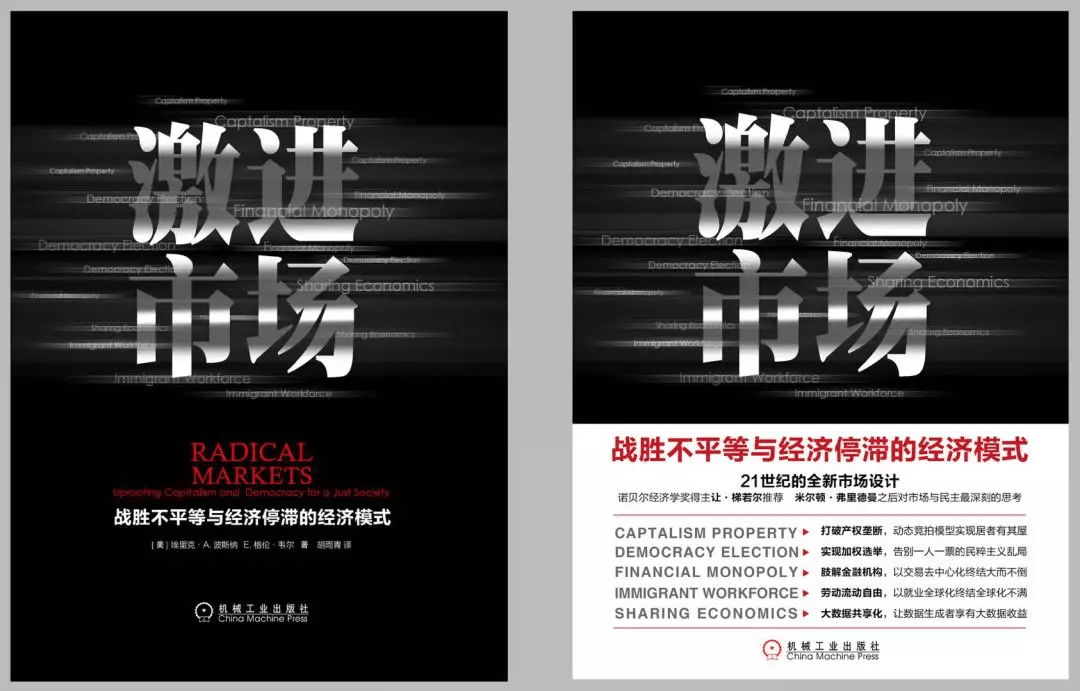
Perhaps at this point we can understand why the author of this book has reason to declare himself a radical marketist "socialist". Of course, we can criticize and question these ideas enough, for example, we still have to face the monopoly of resources by the government and the company, and how can the competitive allocation between communities avoid the division of different communities, just like Like some extreme identity politics today? But there is no doubt that together, envisioning and questioning will give us more and more ideas about social innovation.
In addition, even if the current public welfare and charity projects are put on the blockchain without considering other institutional revolutions, we will reap many obvious benefits. As mentioned by the public account "BlockMania" in the article "Radical Market and Charity" , blockchain technology has four advantages: decentralization, openness and transparency, traceability of information, and automatic execution through smart contracts. Information related to charitable public welfare projects can be distributed on each node of the blockchain network, and we can query and trace every transaction on the chain. Ideally, we can know who the corresponding recipient of each donation is, how it was used, how many times it was distributed, how effective the relief was, and so on. This prevents a certain organization or individual from manipulating a charitable public welfare project to seek benefits for itself.
Another idea to be introduced here is based on digital currency. Enric Duran, an anti-capitalist from Catalonia, Spain, founded the Integral Cooperative with his partners after the 2008 economic crisis. Different from traditional cooperatives, which usually start from the goods or services of a certain industry, the overall cooperative seeks the union of workers from different industries and different positions, and actually forms a life and work network for different workers. Cooperatives include workshops that develop and manufacture machinery, farms that produce food, public transport fleets, online trading networks, democratic committees, and foundations. The cooperative also hopes to establish a more complete cooperative public system, including education, housing, medical departments and so on. Through mutual demand, members use the same digital currency and jointly decide cooperative affairs with stakeholders. And this kind of digital currency and convenient network communication tools can make the cross-regional cooperation of the whole cooperative more feasible. Members of the co-op also believe that further fragmentation of employment is already taking place with the rise of videoconferencing and telecommuting. It is therefore particularly important to promote alternative social networks across industries and workshops, while forming gig and freelance trade unions to fight for labor rights within the capitalist system, which will be the main tool for developing a fair and sustainable form of the economy of the future. . (See "Will Cooperatives Dominate the World After Capitalism Dies? ③" )
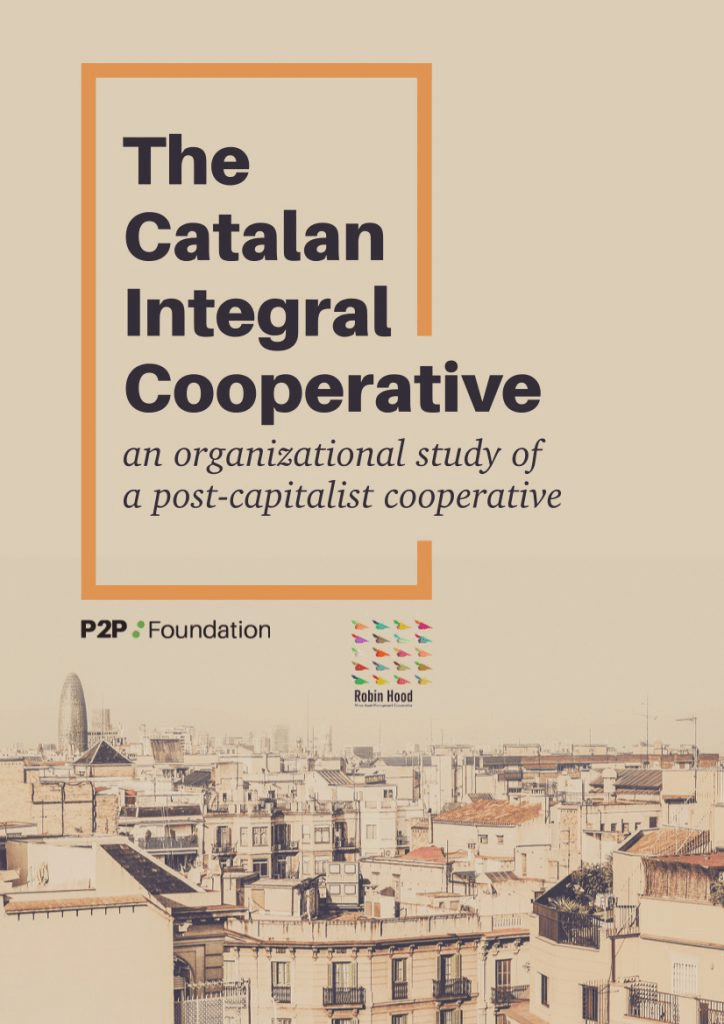
Outlook: Based on this self-organizing action
Let's finally return to the self-organizing action of this pandemic. Notwithstanding the unavoidable fragility of these actions we have mentioned above, are there further possibilities for social transformation from this point of view? At least we hope to explore, from the actions of these special moments, which people’s spontaneous potentials can not be displayed in daily life, and how can these potentials continue to grow and emerge after the epidemic, so as to revolutionize the structure of the entire social ecology? Or we can put it another way, what kind of questions and challenges have these self-organizing actions actually posed to the current social order? In the face of the dilemma brought about by the epidemic, what inspiration can these actions bring to the future, and have they laid some basic paths for the upcoming changes?
We have noticed that during the epidemic, workers organized online platforms to request a delay in resumption of work, and social media are full of concerns of employees about the epidemic prevention situation in the workplace after resumption of work in the future. The size of the affairs lacks the right to speak. If we recognize the differences between different economic sectors, different industries and even different individual enterprises, we should realize that specific arrangements for delaying work resumption and working from home should be made between enterprises and employees, and the universal mandatory provisions of the state cannot be replaced this step. Work arrangements should be negotiated between companies and employees, but obviously our employees lack the right to negotiate and are just forced to accept it all. Employees should also participate in the supervision of workplace epidemic prevention, just as they should participate in labor safety protection supervision in all workplaces. But now these are missing.
We also noticed the other side, the grief of small and medium-sized business owners everywhere. The delayed resumption of work and the sluggish business have caused these companies to face serious financial crises. For this reason, most local governments have issued regulations for these companies to suspend social security contributions. But we still see many companies resorting to forced pay cuts or layoffs to get through the crisis, with some even implementing 50% pay cuts when employees are at full attendance. (See the article "Wage cut is a blessing, fool!" on the official account "New Media Steward") Even though employees have been in a labor environment that lacks corporate democracy, they can't help but express their indignation. In fact, forced pay cuts and layoffs could have been avoided. Many co-ops can achieve zero layoffs when capitalism hits periodic economic crises, thanks to a system designed in which all employees are co-op owners. Through democratic decision-making, members collectively decide on the appropriate rate of salary reduction to survive the financial crisis, and all finances are open and transparent. If it is difficult to ask business owners to immediately transform their enterprises into cooperatives, they should at least try to sell equity to employees to truly demonstrate the sincerity of "overcoming difficulties together". And for those factories and companies that actually went bankrupt, workers could have taken this as an opportunity to take over and transform into cooperatives. For brick-and-mortar bookstores or retail supermarkets facing bankruptcy, not only employees, but consumers can also participate in crowdfunding to transform them into cooperatives. Sadly, our astonishing lack of knowledge and experience in this area has closed the possibilities, but this should not continue.
Another striking phenomenon is the prevalence of telecommuting. While some business owners and management see the approach as inefficient, many employees point out that they have suffered more exploitation than central offices. Whether or not the large-scale experimentation of this pandemic means that the trend towards office decentralization will be accelerated, there is no doubt that telecommuting will reshape the way people work and live. But is it really, as the gig economy preached in the first place, that everyone will become a freelancer with a decent income and be free to arrange their own work schedule? Or is it, as critics from the left have pointed out, that it may overwhelm daily life with work, blurring the line between the two, with workers facing overtime and losing traditional social security? In the absence of labor rights, reality may be sliding toward the latter. And Internet communication technology has become the foreman of the new era. Think about those time-checking software (such as DingTalk), which have extremely broad prospects for personal surveillance.
But it's not all bad news. The Internet also facilitates self-organizing collaboration across geographies, as we talked about when we talked about "whole cooperatives." For example, in this epidemic, some volunteer doctors outside Hubei Province tried to relieve the resource pressure of Hubei Province through online consultation and psychological counseling, and reduce the gathering of patients in hospitals to isolate the risk of infection. (See Caixin.com 's "Over 10,000 Doctors Online Consultation, Supplementing Hubei Medical Resources" ) In daily life, for those workers with middle and high incomes, they are more likely to participate in non-employment through telecommuting. Volunteering, self-organizing to realize the ambition of transforming society, like those tech hackers we mentioned earlier, who created Wikipedia and Github. It must be taken into account that in this epidemic, the Spring Festival holiday plus the ample time for delayed work resumption allowed more people to devote themselves to self-organized collaboration, and this special situation is difficult to rebuild in the daily work and life of 996 . To some extent, the normal wage package during the delayed return to work also inadvertently created a short-lived experiment similar to an unconditional basic income. We see that once the populace has spontaneity, this solution becomes completely feasible. At that time, workers will undoubtedly vote with their feet to explore a democratic economic model in a larger space, thereby prompting mankind to abandon the existing corporate absolutism. Cross-regional self-organized collaboration will also likely shape a different kind of globalization than neoliberalism. The European P2P Foundation once put forward the idea of "Design Global, Manufacture Local" in an article: all knowledge design will become a digital commons that is shared, shared and governed by the world. At the same time, material The manufacture of the product takes place locally. At that time, self-organization is expected to bypass oligarchs and carry out global production on its own, and it will be more difficult for multinational capital companies to depress labor wages through international industrial transfer, so that workers in different countries will compete in bottom-to-bottom bidding. The internationalism of the working class may cease to be empty words and have a practical material basis. But there is no doubt that the extent to which this vision is realized still depends on progress in social empowerment.
In addition, we also pay attention to the case of a volunteer team from Wuhan. From this we see that the self-organization of the people can replace the government or the market to provide public services. Such cases have appeared not only in Wuhan during the epidemic, but also in the daily lives of citizens in many cities around the world. For example, taxi cooperatives have emerged in Tel Aviv, Israel, Portland, Denver and Madison in the United States, Montreal, Canada, and Seoul, Hong Kong and Taiwan. Like Didi, these cooperatives use mobile Internet platforms to facilitate users and customers, but these platforms are jointly owned by users/drivers and operate in a democratic decision-making and fair distribution manner. Some platforms also use blockchain to achieve decentralized management. Apart from public transportation, this kind of platform corporatism, which combines Internet platform technology with the cooperative model, can also be applied to many other fields, such as online transactions, housekeeping, creative industries, news media and so on.
The last thing we care about is ground rent. From the non-mandatory rent-free initiatives in the rental industry, what we see mainly is the limited benefit of real estate capital and the traditional rent-paying class to small and medium-sized enterprises. However, the problem of rent deprivation of individual income of workers is still ignored. It was during the epidemic that long-term rental apartment platforms such as Danke took a series of measures to try to pass the cost on to tenants. For those structurally outcasts excluded from the urban consumption system, the situation may be even worse. Is their future a repeat of the reality version of "Parasite" + "Thief Family"? ——During the epidemic, a man had to live in a closed retail supermarket for half a month due to his loss of income, financial constraints and no place to live ( see report ). If the "public ownership self-assessment tax" has its rationality, it is precisely that it is based on the actual needs of each person for a certain material in the matching of material supply. Just relying on the digital display of self-assessment tax to assess the actual needs, there are indeed many difficulties in operation. However, it may be a related alternative to hand over a privately-owned item to self-organization, such as a community committee, for public management during idle periods of use. For example, vacant house information can be put on the online platform, and the local self-organization can compete for distribution through the mechanism of QF, thereby transforming them into temporary public goods, which is a kind of non-marketization and promotes public welfare. Airbnb program. Another implication of ground rent is that even if UBI becomes a reality in the future, we need to think like David Harvey and find the consistency between conflict in the community and conflict in the workplace, and find in it Clues that define objective class. In other words, the self-organization of the community will help workers keep more of their wages in their hands. Residents will save a lot of money if they build community nurseries and hospitals. The consumer cooperatives formed on the basis of mutual aid group purchases may also become a path for the popularization of healthy and low-energy lifestyles. If the public accumulation in the field of community reproduction is put into nearby production, such as community new energy, waste recycling, renovation of old houses and even new house construction, a brand-new alternative small society will be built.
Like my work? Don't forget to support and clap, let me know that you are with me on the road of creation. Keep this enthusiasm together!

- Author
- More